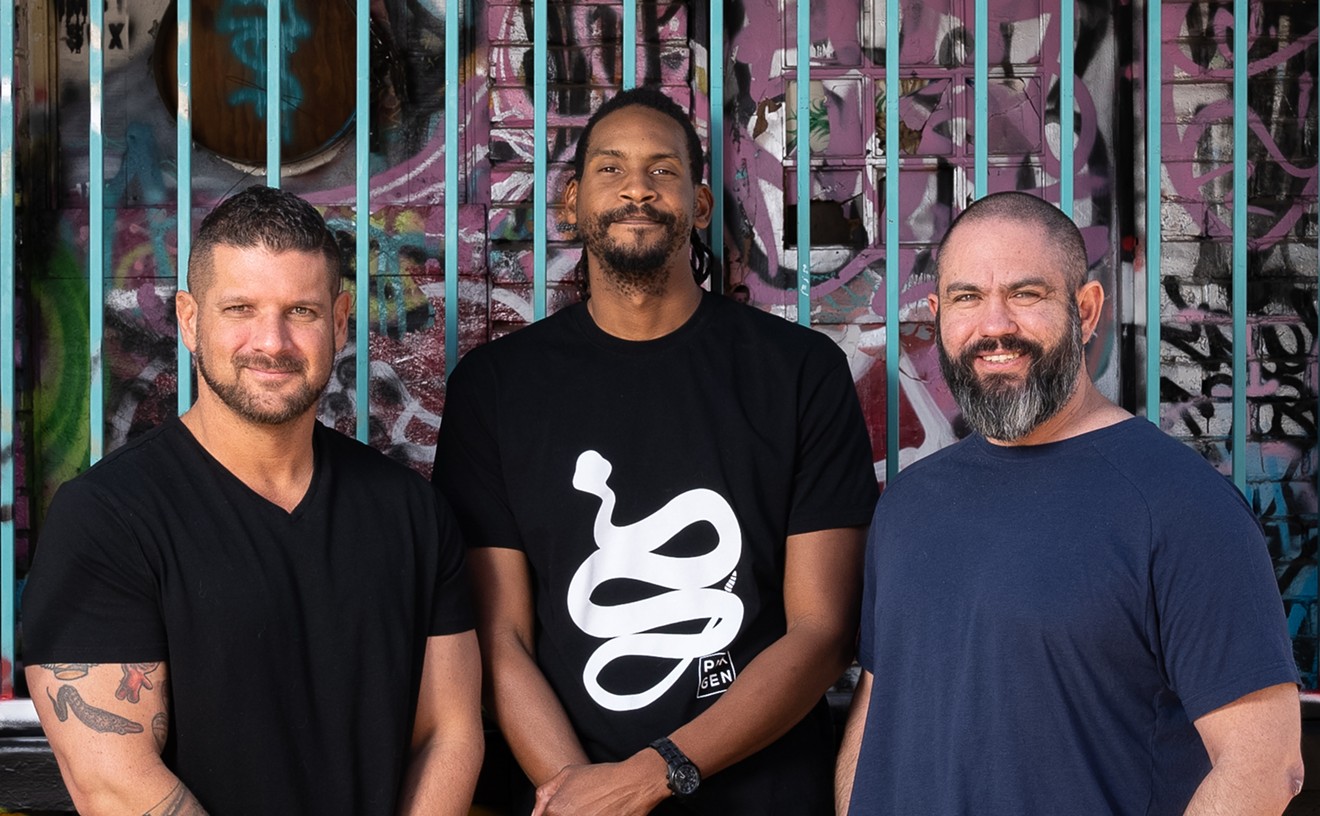Why not? There's nothing inherently more ridiculous about the competitive performance of poetry than there is about competitive ballroom dancing or figure skating--all of the above hinge on the judging of "artistic merit."
After all, as is pointed out in the film, the great tragedies and comedies of ancient Greece--the prototypes of Western literature--were the products of annual competitions. Plenty of the poets that we see in SlamNation doth protest too much, like long-shot Oscar nominees, about how they're artists, and they worry that the slams are too focused on winning and losing. It's extremely refreshing when the liveliest and funniest of the poets in the film, Taylor Mali of Providence, Rhode Island, states flatly and without embarrassment that he wants to win and will resort to just about any strategy to do so.
In a desultory history lesson, the film tells us that poetry slams--live recitations of beat-style verse awarded number scores in the manner of a diving competition, by judges selected from the audience--were begun at the Green Mill Lounge in Chicago, largely by working-class bard Marc Smith. The heart of the scene eventually shifted to a club called the Nuyorican in New York City, but slams thrive in many other communities, as well (there's a glimpse of a poet from Mesa in the film). It's produced its own luminaries, like Boston's recently controversial imaginative newspaper columnist Patricia Smith and New York's Saul Williams and Jessica Care Moore.
The film chiefly centers on Williams, Moore, Beau Sia and a man who calls himself muMs da Schemer, who make up the New York City team, the champs of the Nuyorican, and their trip to Portland. Devlin digresses freely, however, to show both performance footage and behind-the-scenes glimpses of the petty intrigues and ego bruisings and personality clashes of the competitors.
I must confess that I expected SlamNation to be a thoroughly dreary experience. At a real poetry slam, the bright spots are generally the hard-won reward for sitting through hours of miserable doggerel. Happily, this film gives us the good stuff at length, and shows us just enough of the uninspired stuff to give us an idea of what we don't need to see. Devlin's slick, Sports Illustrated-style professionalism gives a (possibly unintentional) ironic tinge to what we're seeing, and many of the poets are truly engaging, both as performers and as interview subjects.
As literature, of course, most of what we hear isn't likely to have Catullus or Dante--or even Allen Ginsberg--shaking in his boots. The goal isn't delicate, finely wrought imagery but thumping rhythms and verbal calisthenics, flashy systems of rhyme and alliteration, or wild, attention-grabbing rhetoric and humor. It's about getting the crowd jazzed. In all likelihood, it's closer to what poetry was originally, in its tribal, preliterary days, than any sonnet can claim to be.
Some of the poets, notably Saul Williams, are often able to get the crowd cheering and clapping along with them, like solo musicians on a hot riff. muMs da Schemer is nothing more than a (very good) rapper who works without an audible beat--"I'm a supercucaracha/With a third eye to spot ya"--and the youthful Sia's material is basically just standup comedy performed to a nominal meter.
We do see a few performers who offer quieter, more reflective viewpoints. Gayle Danley of Baltimore speaks a striking verse beginning "I want to die like Nixon/Forgiven, pardoned, deified. . . ." Boston's Jack McCarthy softly recites a heartbreaker about a son who died in infancy.
But flamboyance and wit are the staples of the competition. The scene-stealer is Mali, whose Providence team is the chief threat to the New York foursome. This brash, dapper, fiercely competitive young man is also the self-appointed parodist of the slams. His works are long, hilariously acute catalogues of affected inflections and stage mannerisms. Yet it isn't simple mockery--his cutting-through-the-bullshit humor carries a real sense of outrage over modern language's loss of declarative authority.
Overall, SlamNation is a very pleasant surprise, but there is one small irritant to the film. Part of the mission behind the slams, surely, is to provide an alternative to homogenized mass entertainment--to revive the tradition of art created by and shared with a community. But the slam team the film puts us in the position of rooting for is the one from the Nuyorican, and its members are, indeed, quite wonderful to watch. How can any self-respecting regionalist root for New York City to win the national title of anything?
SlamNation
Directed by Paul Devlin; with Saul Williams, Taylor Mali, muMs da Schemer, Beau Sia, Patricia Smith and Marc Smith.
Unrated.










